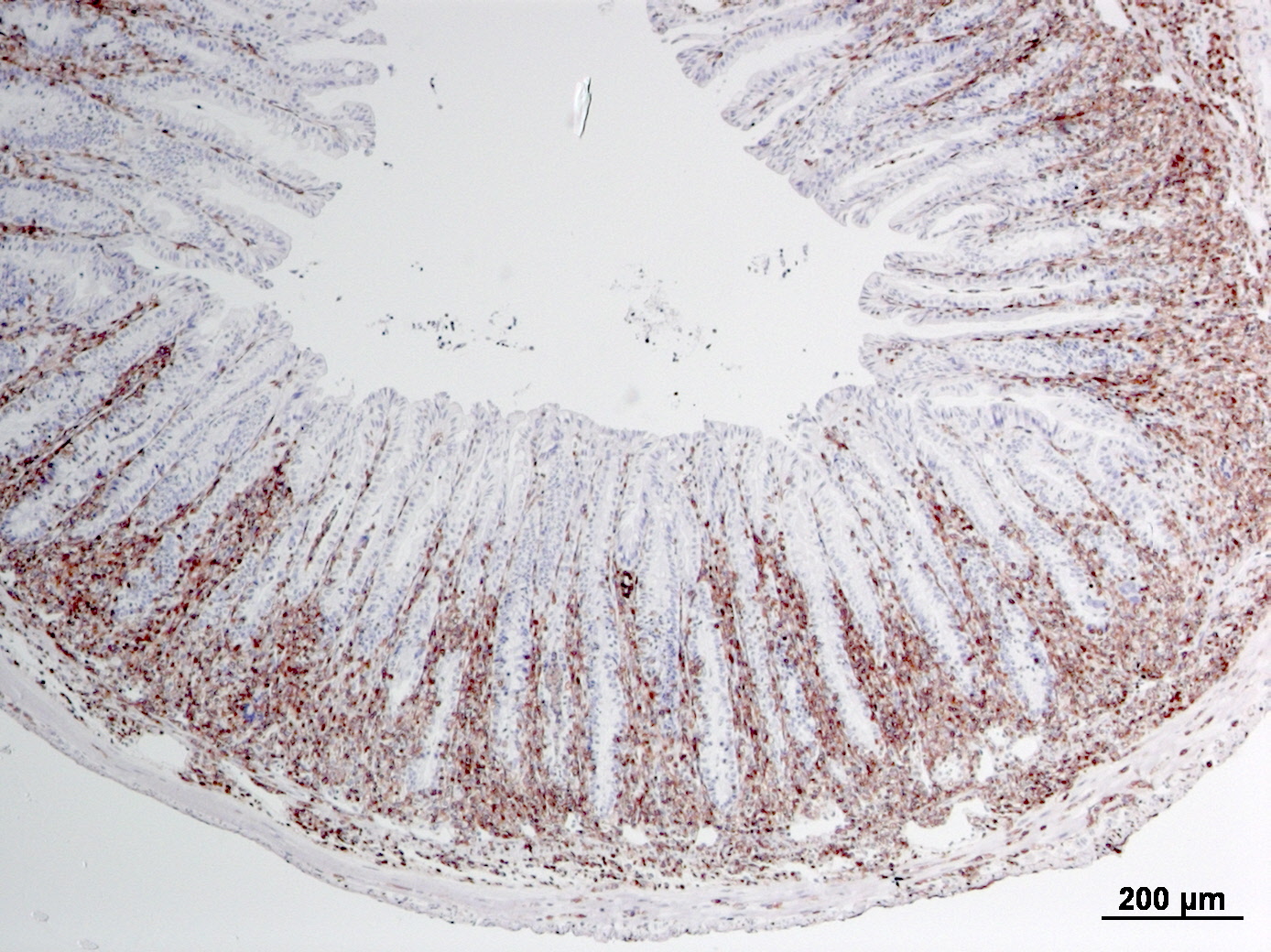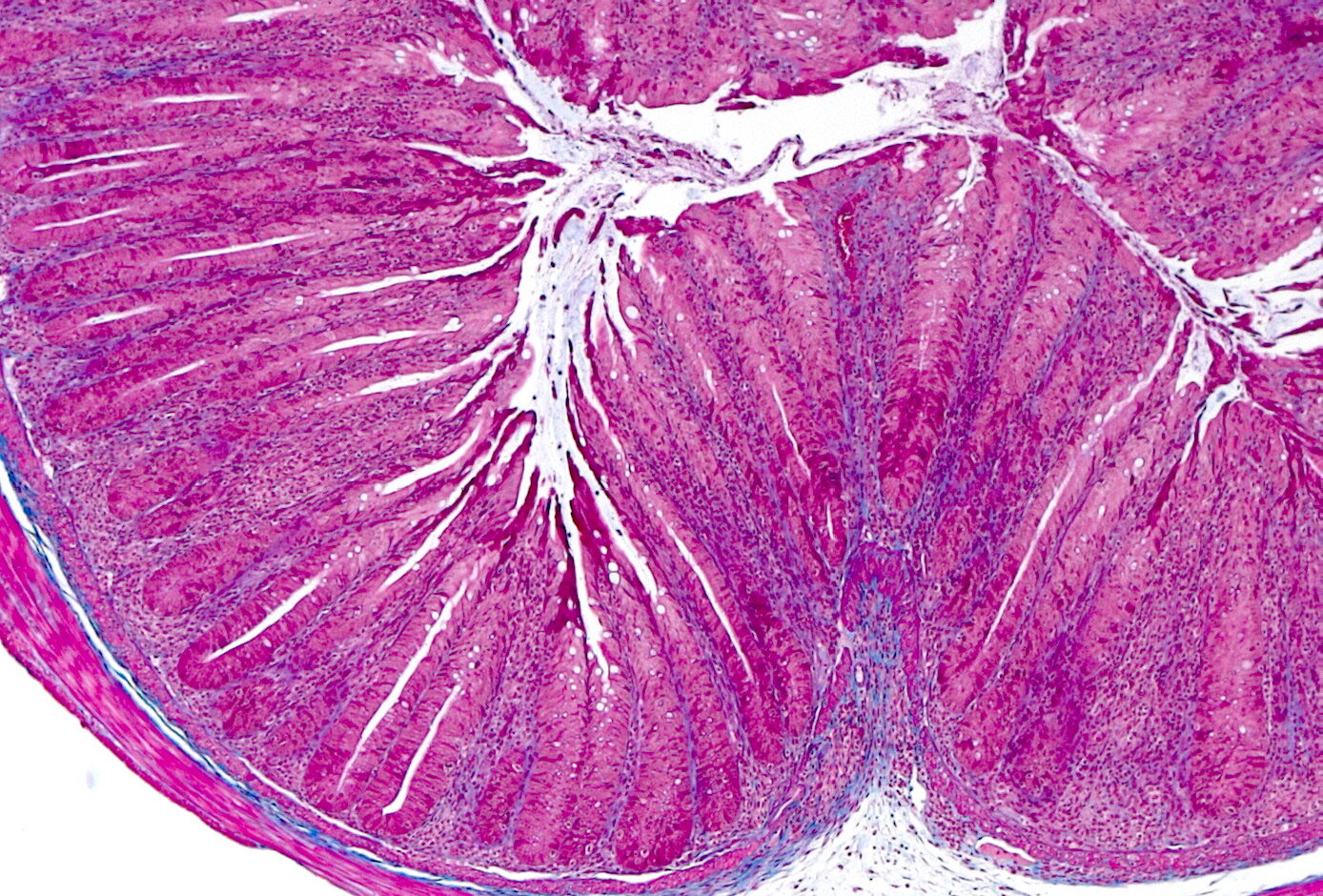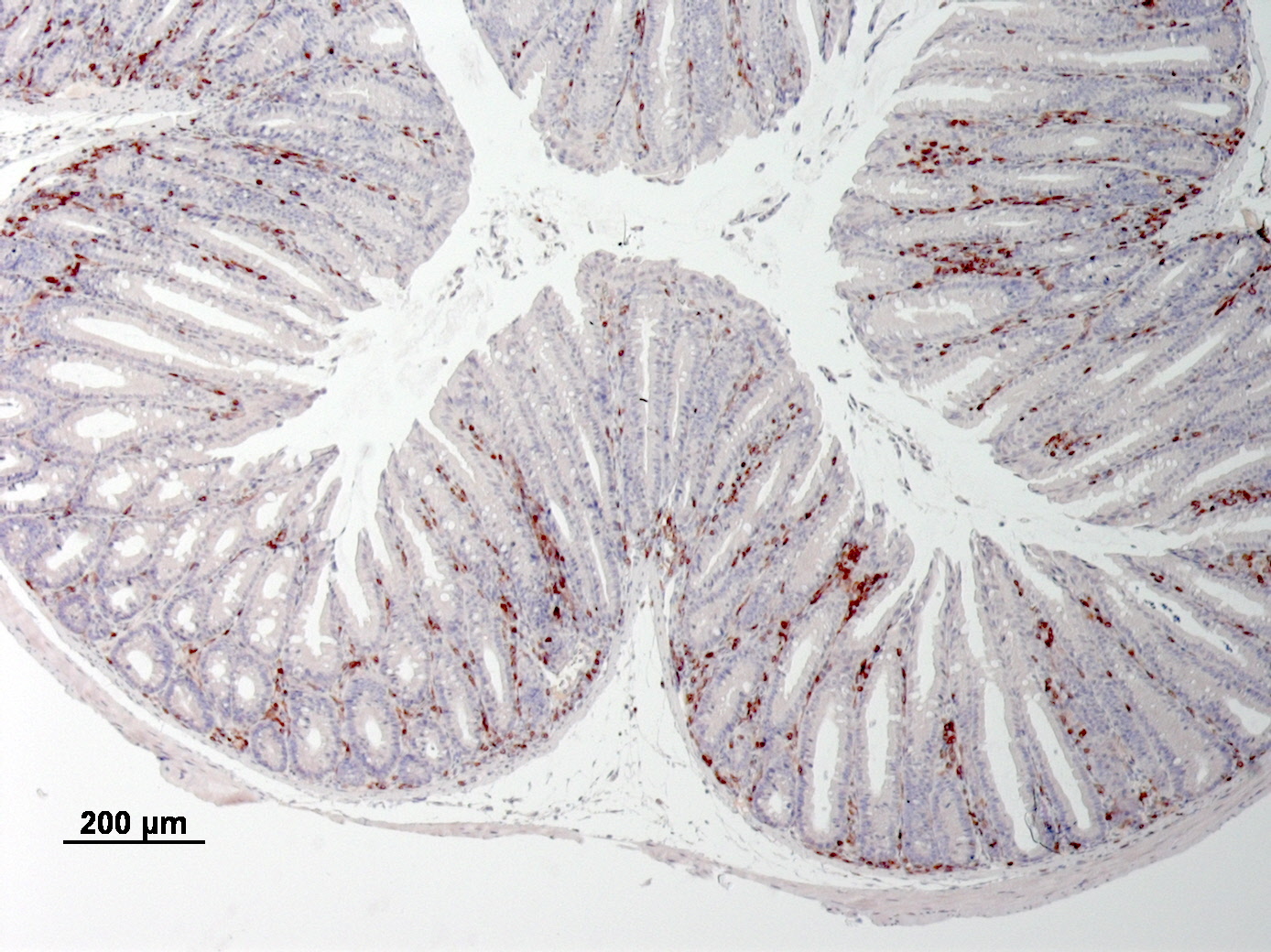In this technique, naïve T-cells isolated from healthy donors are transferred into an immunodeficient recipient. The unregulated activation of the donor T-cells by luminal antigens from the gut triggers an inflammatory response in the colon, resulting in the development of colitis.
This adoptive T-cell transfer model typically runs over 4-5 weeks. Colitis is associated with a Th1/Th17-type immune response and is characterised by epithelial hyperplasia, goblet cell depletion and infiltration of inflammatory cells into the mucosa and submucosa; crypt abscess formation and ulceration may also be observed.
Several options are available for the T-cell donor/recipient pairs, so that studies can be tailored to your specific needs.
Primary Readouts
- Large bowel histopathology
Further Readouts
- Large bowel weight : length ratio
- Immunohistochemistry and immunofluorescence
- Diarrhoea severity
- Weight loss
- FACS analysis of inflammatory cell response
- Multiplex analysis of serum and tissue cytokines
- Protein expression
- Gene expression
- Intestinal permeability assay (FITC Dextran)
- ELISA: MPO & Fecal Lipocalin (Lcn-2) assay
- T-Cell engraftment flow cytometry confirmation



